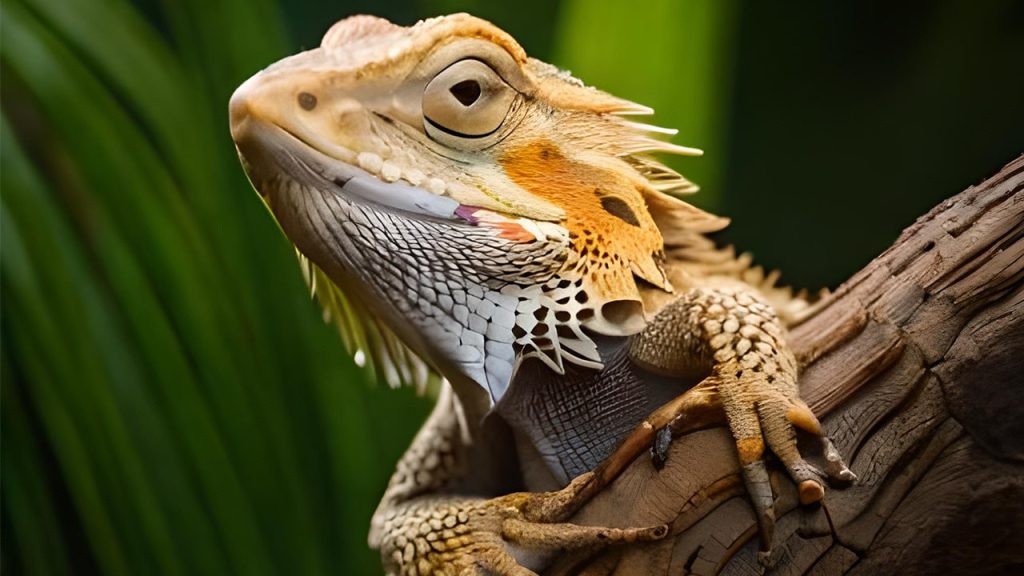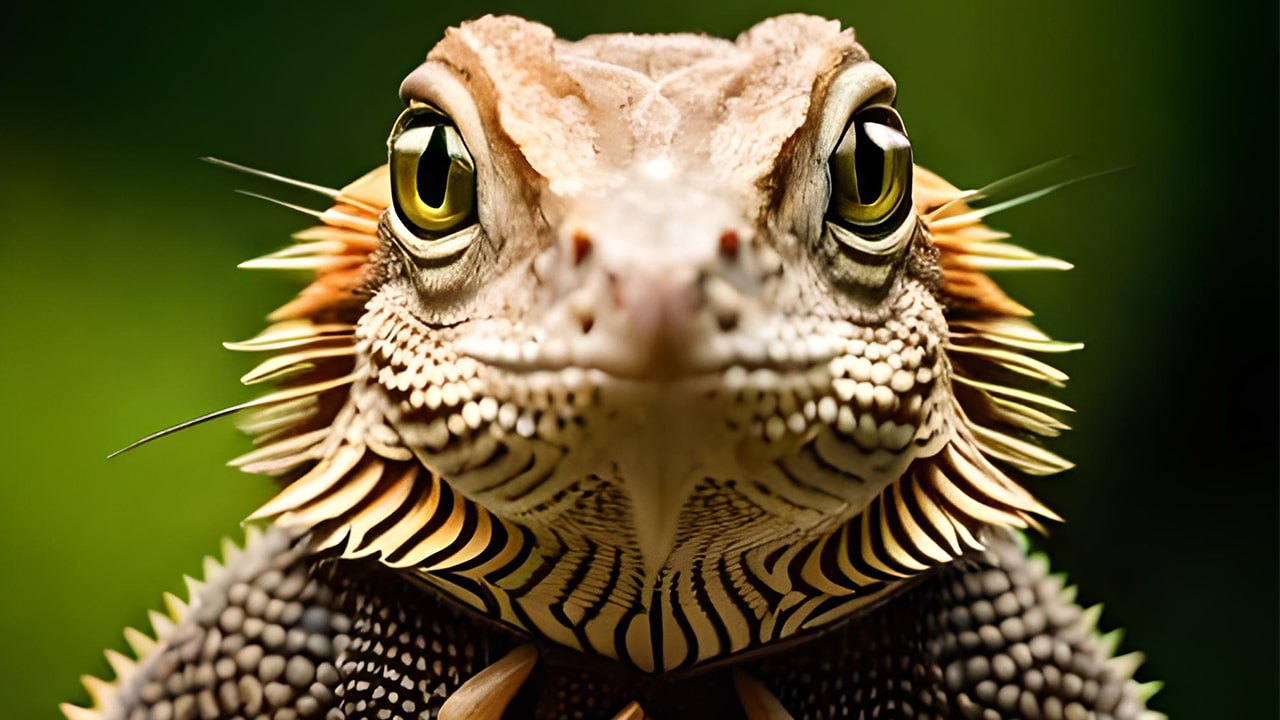Bearded dragons are fascinating reptiles that have become popular pets due to their unique appearance and relatively low maintenance. As a responsible owner, it is essential to monitor your bearded dragon’s behavior closely and understand any signs or changes in their actions.
One such behavior that may cause concern is lip smacking. In this article, we will delve into the reasons why your bearded dragon might be smacking its lips and explore potential causes and solutions.
Contents
Understanding Bearded Dragons
Before we discuss lip smacking in bearded dragons, let’s gain a basic understanding of these reptiles. Bearded dragons, scientifically known as Pogona, are native to Australia and are known for their bearded appearance and docile nature. They are diurnal creatures, meaning they are active during the day and rest at night. Bearded dragons require specific care, including proper diet, lighting, temperature, and habitat, to ensure their well-being.
Normal Behavior of Bearded Dragons
To determine if your bearded dragon’s lip smacking is a cause for concern, it’s essential to be aware of their normal behavior. Bearded dragons exhibit various behaviors, including basking under heat lamps, exploring their surroundings, digging, and interacting with their owners. They may also display territorial behavior, such as head bobbing or arm waving, to communicate dominance or attract a mate.
Lip Smacking in Bearded Dragons
Lip smacking is a behavior commonly observed in bearded dragons. It involves rapid movements of the lips, accompanied by audible clicking or smacking sounds. While occasional lip smacking may not indicate a severe issue, persistent or excessive lip smacking can be a sign of an underlying problem that requires attention.
Possible Causes of Lip Smacking
Several factors can contribute to lip smacking in bearded dragons. It is crucial to identify the potential causes to determine the appropriate course of action. The following are some common causes of lip smacking:
1. Dehydration and Lip Smacking
Dehydration is a significant concern for bearded dragons and can lead to lip smacking. Inadequate water intake or an improper habitat setup that fails to provide adequate humidity levels can contribute to dehydration. It is vital to ensure that your bearded dragon has access to clean water and a properly humidified environment.
2. Respiratory Infections and Lip Smacking
Respiratory infections can cause lip smacking in bearded dragons. These infections may be a result of poor husbandry, inadequate temperature gradients, or exposure to drafts. If your bearded dragon is exhibiting additional symptoms like wheezing, open-mouth breathing, or nasal discharge, a respiratory infection could be the cause.
3. Nutritional Issues and Lip Smacking
Inadequate nutrition or improper feeding practices can lead to lip smacking. Bearded dragons require a balanced diet consisting of appropriate ratios of vegetables, fruits, and insects. A lack of essential nutrients or an unbalanced diet can cause lip smacking and other health problems.
4. Dental Problems and Lip Smacking
Dental issues, such as mouth infections or tooth decay, can result in lip smacking. These problems can make eating painful for your bearded dragon, leading to lip smacking as a response to discomfort. Regular dental care and monitoring can help prevent and address such issues.
5. Environmental Factors and Lip Smacking
Environmental factors, such as excessively high or low temperatures, inadequate lighting, or an uncomfortable enclosure, can cause stress and lip smacking in bearded dragons. It is crucial to create a suitable habitat with appropriate temperature gradients, UVB lighting, and hiding spots to ensure your bearded dragon’s well-being.
6. Stress and Lip Smacking
Stress can manifest in lip smacking behavior in bearded dragons. Factors like handling, overcrowding, sudden changes in the environment, or the presence of other pets can contribute to stress. Providing a calm and secure environment, along with regular handling and socialization, can help reduce stress levels.
How to Address Lip Smacking
If you notice your bearded dragon smacking its lips, it is essential to address the underlying cause promptly. Here are some steps you can take:
- Consult a Reptile Veterinarian: A reptile veterinarian experienced with bearded dragons can perform a thorough examination and provide appropriate diagnosis and treatment options.
- Adjust the Habitat: Ensure the enclosure provides optimal temperature gradients, UVB lighting, humidity levels, and hiding spots.
- Review Diet and Feeding: Assess your bearded dragon’s diet and ensure it includes a variety of vegetables, fruits, and insects that meet their nutritional requirements.
- Promote Hydration: Encourage your bearded dragon to drink water by providing clean water sources and misting the enclosure to maintain adequate humidity levels.
- Reduce Stressors: Identify and eliminate stressors in your bearded dragon’s environment, such as loud noises, excessive handling, or territorial conflicts with other pets.

Preventive Measures for Lip Smacking
Taking preventive measures can help maintain your bearded dragon’s overall health and reduce the likelihood of lip smacking. Consider the following:
- Proper Hydration: Ensure your bearded dragon has access to clean water at all times and mist the enclosure to maintain proper humidity levels.
- Balanced Diet: Provide a balanced and nutritious diet that includes a variety of vegetables, fruits, and appropriate insects.
- Optimal Habitat Conditions: Create a suitable habitat with proper temperature gradients, UVB lighting, and hiding spots.
- Regular Veterinary Check-ups: Schedule regular visits with a reptile veterinarian to monitor your bearded dragon’s health and address any potential issues early on.
- Minimize Stress: Provide a calm and comfortable environment, handle your bearded dragon gently, and avoid overcrowding or exposing them to stressful situations.
Conclusion
Lip smacking in bearded dragons can be a cause for concern, but it is essential to evaluate the potential causes and take appropriate action. Understanding your bearded dragon’s behavior and addressing any underlying issues promptly can help ensure their well-being and happiness as your beloved pet.
Frequently Asked Questions
Q1: Can lip smacking be a normal behavior in bearded dragons? A: Occasional lip smacking can be normal, but persistent or excessive lip smacking may indicate an underlying problem.
Q2: Should I be worried if my bearded dragon smacks its lips occasionally? A: Occasional lip smacking may not be a cause for concern, but it is essential to monitor your bearded dragon’s overall health and behavior.
Q3: How can I prevent dehydration in my bearded dragon? A: Ensure your bearded dragon has access to clean water at all times and maintain proper humidity levels in the enclosure.
Q4: Can dental issues cause lip smacking in bearded dragons? A: Yes, dental problems can cause discomfort while eating and lead to lip smacking.
Q5: What should I do if I suspect my bearded dragon has a respiratory infection? A: Consult a reptile veterinarian for a proper diagnosis and appropriate treatment options if you suspect a respiratory infection in your bearded dragon.


